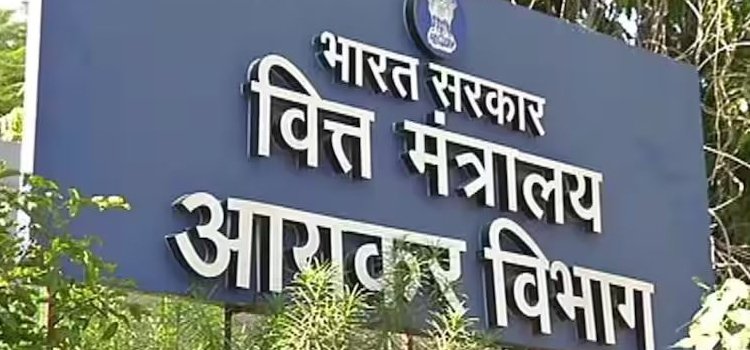ECONOMY
Union Budget pegs fiscal deficit lower at 4.9%, moots job-linked incentives
- IBJ Bureau
- Jul 24, 2024

Finance Minister Nirmala Sitharaman on Tuesday presented the Budget for 2024-25, her seventh straight presentation surpassing the record of former Prime Minister Morarji Desai. This is the first Budget during Prime Minister Narendra Modi-led government’s third term in office.
“India’s economic growth continues to shine while the global economy is still in the grip of policy uncertainty,” added Ms Sitharaman.
Total receipts, excluding borrowings, were estimated at Rs 32.07 lakh crore, while total expenditure was projected at Rs 48.21 lakh crore. Net tax receipts were anticipated to be Rs 25.83 lakh crore.
The government’s gross market borrowing in 2024-25 was estimated at Rs 14.01 lakh crore, down from Rs 14.13 lakh crore projected in the interim Budget. The fiscal deficit for FY25 was set at 4.9 per cent, an improvement from the 5.1 per cent target announced in the interim Budget of February 2024.
The finance minister announced three employment-linked incentive schemes for employees and employers. These schemes will be based on enrolment in the EPFO, focusing on recognising first-time employees.
In a major relief to the startup ecosystem and investors, the Budget announced to abolish the angel tax. Angel tax is a levy that is paid by unlisted companies on the capital raised by them from investors. The tax is levied on the difference between the capital raised by selling their shares and the fair market value of their shares.
Ms Sitharaman said that the standard deduction for salaried employees would be hiked to Rs 75,000 from Rs 50,000 under the new Income Tax regime in FY25. The old Income Tax regime was left unchanged.
Stock market reacted sharply to some of the provisions, with Sensex and Nefty shedding over 900 and 400 points respectively during the Budget speech. However, the market recovered later on, with BSE Sensex settling lower by 73.04 points or 0.09 per cent to 80,429.04. NSE Nifty 50 was down by 30.20 points or 0.12 per cent at 24,479.05.
The finance minister proposed to increase Securities Transaction Tax on futures and options contracts to 0.2 per cent and 0.1 per cent respectively. This was expected to curb volatility in the market, for which everyone, including the SEBI, was concerned.
Besides, income received on buyback of shares will be taxed in the hands of the recipient. According to the Budget proposals, unlisted bonds and debentures, debt mutual funds and market-linked debentures will attract tax on capital gains, irrespective of holding period.
Ms Sitharaman announced an increase in both Long-Term and Short-Term Capital Gains Tax. The government also proposed to do away with indexation benefit for sale of property, which allow property owners to adjust their gains for inflation.





















Report By
View Reporter News